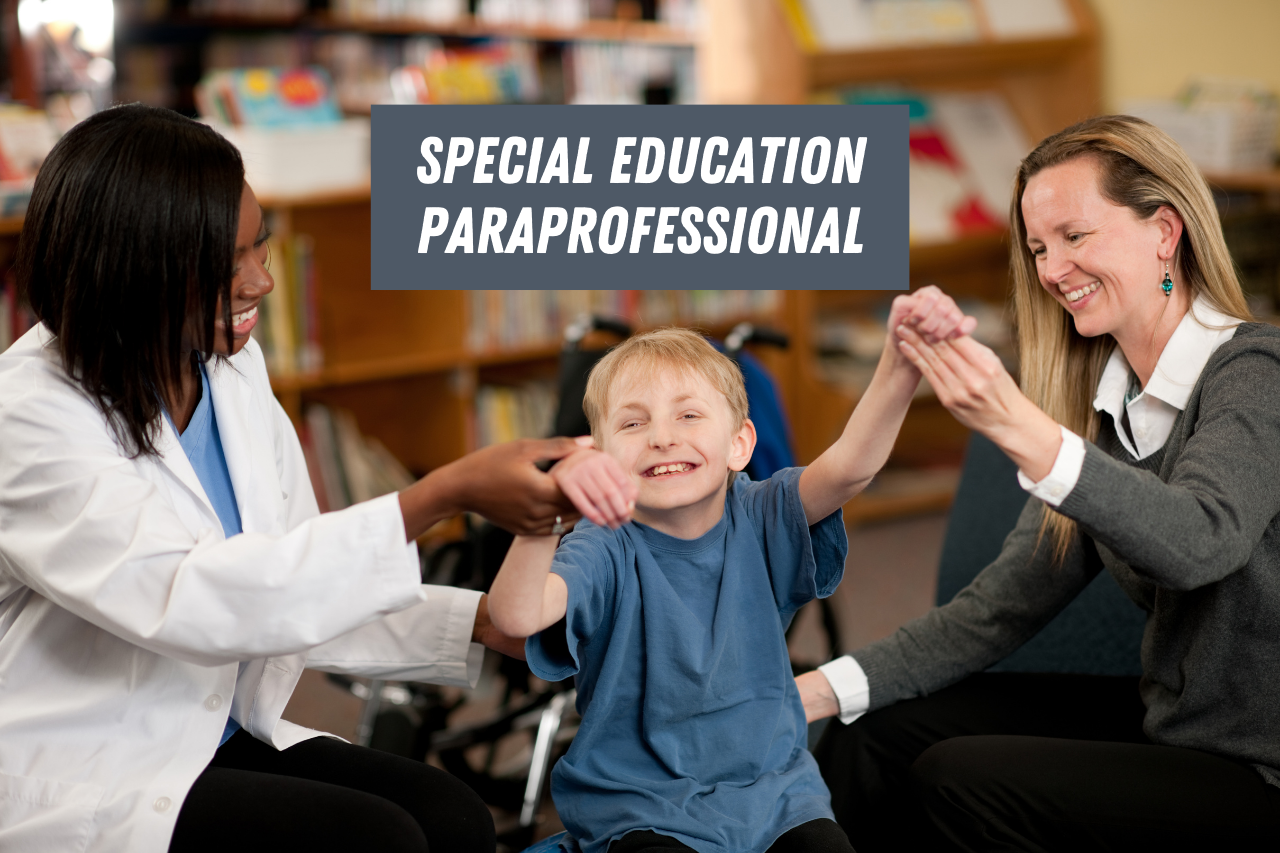
special education paraprofessional
In the realm of education, there exists a group of dedicated professionals who often work tirelessly behind the scenes, providing crucial support to students with special needs. Special Education Paraprofessionals, also known as paraeducators or teacher’s aides, play a pivotal role in creating inclusive and supportive learning environments. In this blog post, we will explore the invaluable contributions of these unsung heroes, shedding light on their responsibilities, challenges, and the profound impact they have on the lives of students with special needs.
Table of Contents
Togglespecial education paraprofessional
Special Education Paraprofessionals are the unsung heroes within the educational system, providing invaluable support to students with diverse learning needs. In the classroom, they serve as dedicated aides, offering individualized assistance and adapting teaching strategies to accommodate the unique requirements of each student. Beyond academics, paraprofessionals play a pivotal role in managing behavioral challenges, providing personal care for students with physical disabilities, and fostering a positive and inclusive learning environment. Their role extends to communication with teachers and parents, acting as liaisons to ensure a collaborative and holistic approach to a student’s education.
Understanding the Role:
Special Education Paraprofessionals work alongside teachers to assist students with various disabilities, ranging from learning disabilities and behavioral disorders to physical and developmental challenges. Their role is multifaceted, encompassing academic, emotional, and physical support. Unlike teachers, paraprofessionals often work on a one-on-one or small group basis, providing individualized attention and fostering a more personalized learning experience.
Responsibilities:
- Academic Support: Special Education Paraprofessionals are instrumental in reinforcing lessons, adapting materials, and providing additional instruction to ensure that students with special needs grasp and retain information. They collaborate closely with teachers to implement Individualized Education Programs (IEPs) and tailor teaching strategies to meet the unique learning styles of each student.
- Behavioral Assistance: Managing and addressing behavioral challenges is a significant aspect of a paraprofessional’s role. They work to create a positive and inclusive classroom environment, employing strategies to prevent and address disruptive behaviors. This may involve implementing behavior plans, reinforcing positive behavior, and offering emotional support to students.
- Personal Care and Physical Assistance: For students with physical disabilities, paraprofessionals often provide essential physical assistance, helping with tasks such as mobility, restroom use, and other daily activities. This hands-on support enables students to navigate the school environment more independently, promoting a sense of autonomy.
- Communication Liaison: Paraprofessionals serve as a crucial link between teachers, students, and parents. They communicate regularly with teachers to provide updates on students’ progress, share insights into individual needs, and collaborate on effective teaching strategies. Additionally, they play a key role in fostering positive relationships with parents, ensuring a collaborative approach to a student’s education.
Challenges Faced:
While the role of Special Education Paraprofessionals is immensely rewarding, it comes with its set of challenges. Limited resources, varying degrees of student needs, and the emotional demands of working closely with students facing significant challenges can be overwhelming. Additionally, paraprofessionals may encounter situations where they need to navigate complex legal and ethical considerations related to special education.
The Emotional Impact:
Beyond the academic and logistical responsibilities, Special Education Paraprofessionals often form deep emotional connections with their students. Witnessing the triumphs and struggles of students with special needs, they become advocates and allies in the journey toward educational success. The emotional investment required for this role can be both fulfilling and emotionally taxing, highlighting the resilience and compassion inherent in these professionals.
Professional Development and Recognition:
Despite their vital contributions, Special Education Paraprofessionals sometimes face a lack of recognition and opportunities for professional development. Elevating their status within the education system by providing ongoing training, mentorship programs, and acknowledgment of their indispensable role is crucial for retaining and motivating these dedicated professionals.
Impact on Students:
The impact of Special Education Paraprofessionals extends far beyond the classroom. For students with special needs, having a dedicated paraeducator can be a game-changer. The personalized attention, emotional support, and tailored assistance contribute significantly to the student’s academic achievements, social development, and overall well-being.
Conclusion:
Special Education Paraprofessionals are the unsung heroes of the education system, embodying dedication, compassion, and resilience. Their multifaceted role goes beyond the traditional boundaries of education, reaching into the realms of emotional support, advocacy, and personal development. As we acknowledge the critical role they play, it’s imperative to advocate for increased recognition, support, and professional development opportunities for these invaluable members of the educational community. In doing so, we can ensure that the impact of Special Education Paraprofessionals continues to be a driving force in creating inclusive and enriching educational experiences for students with special needs.
Also Read: Oklahoma state department of Education news


